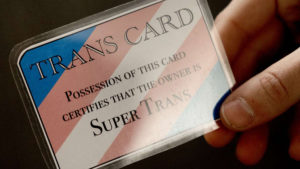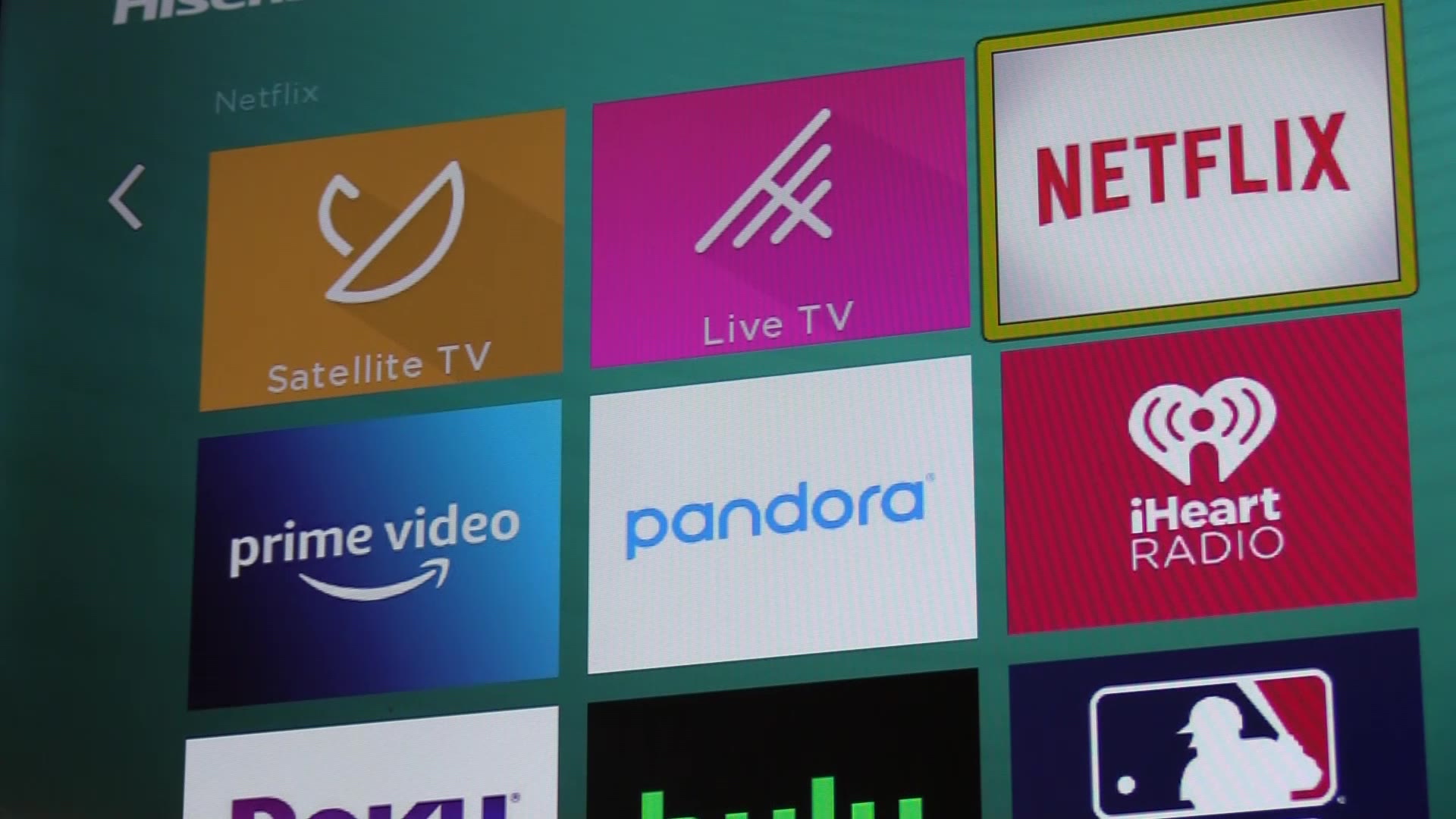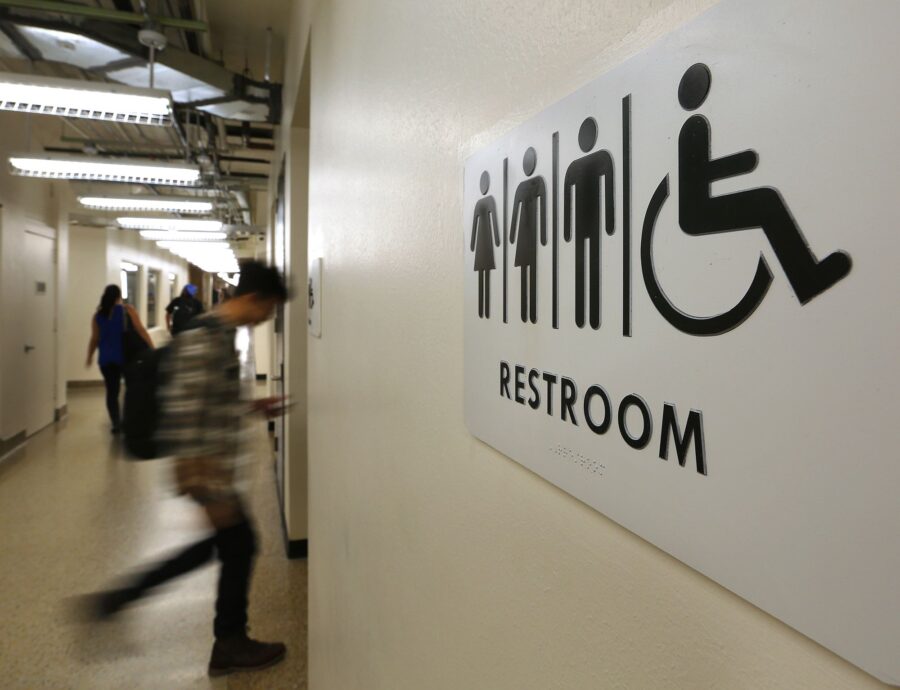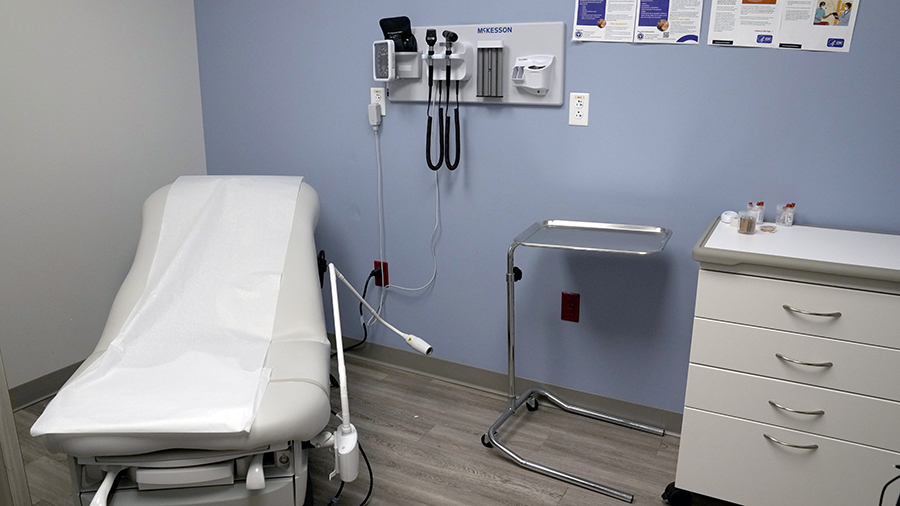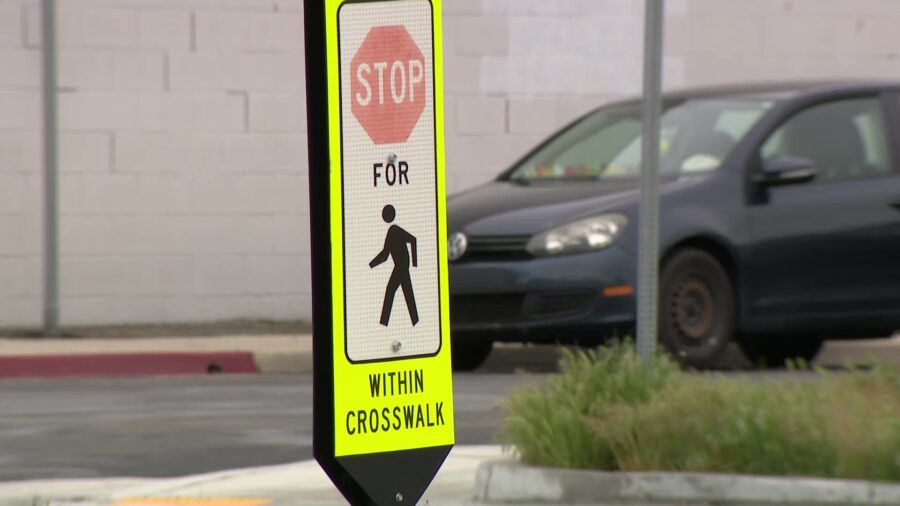Utah holds 1st Gender Marker Change Day
Dec 10, 2022, 12:43 PM

Jaxon Smith, left, works on his paperwork with attorney Derek Parry during Gender Marker Change Day at the Scott M. Matheson Courthouse in Salt Lake City on Friday. The day offered queer Utahns the opportunity to receive free help in legally changing their gender markers and/or names. (Laura Seitz, Deseret News)
(Laura Seitz, Deseret News)
SALT LAKE CITY — On Friday, Shannon Woodbury legally confirmed the name and gender she has been using for over a decade.
“I came out as transgender way back in 2008,” she said. “My old name, I haven’t gone by that in a really long time. Even my bank and my job have used my new name for paychecks and stuff. I’ve had jobs that have put me down as my preferred gender, as female, for years. But clearly, I’ve wanted to do it officially for a very long time.”
Woodbury was one of dozens of individuals who participated in Gender Marker Day. The day offered queer Utahns the opportunity to receive free help in legally changing their gender markers and/or names. Organizers said the event is the first of its kind not just in Utah, but anywhere in the world.

Avery Kjar, from left, Meredith Thomas, Ronnie Robledo and Niko Ahquin wait for their paperwork to get filed during Gender Marker Change Day at the Scott M. Matheson Courthouse in Salt Lake City on Friday. (Photo: Laura Seitz, Deseret News)
“It’s been months of planning and lots of wrangling cats, but the people that I’ve engaged with, the participants, it’s an incredible population of people,” said attorney Angela Elmore, one of the main organizers for the event. “They’re just so grateful, just super sweet people.”
The event had 57 slots that filled up within a few days, but demand was so high that an estimated 20-60 showed up the day-of in hopes of getting help, Elmore said. She plans to continue the event on a yearly basis, likely each May, and to expand it to include other resources for trans individuals.
Participants said the event is a much-needed resource for Utah’s LGBTQ community since the process to change name and gender markers can be daunting and expensive. The Utah Legal Clinic, for example, has an $885 flat fee for an adult name and/or gender change.
Elmore said the event had a number of small donors and nonprofits who covered the cost of individuals who did not qualify for fee waivers.
Woodbury initially tried to file a name and gender marker change without legal help but discovered she had done so incorrectly after receiving help from the Gender Marker Day volunteers.
“It’s just been hard to know what order to do stuff in,” she said. “(The event) is extremely helpful because I had no idea what to do. It’s great; I’m glad I’m here.”
Sandy resident Jaxon Smith also said the name and gender marker change process was intimidating. The process includes:
- Getting a doctor’s letter stating that the individual has received appropriate clinical care or treatment for gender transition
- Getting a certified letter from the Department of Corrections verifying that the individual is not on the sex and kidnap offender and Child Abuse Offender registries
- Attending a court hearing
- Filing a court order with Utah Vital Records and Statistics
- Updating the individual’s name and gender with the Utah Driver License Division, Social Security Administration, banks, healthcare providers, insurance companies, employers and other institutions.experiences
“I’m really excited that this is such a big step forward in the process, but there’s still so much to do,” Smith said after exiting his court hearing. “And it can be a little bit unclear about what the process is outside of the court. I get my court order — I change my name and gender and that’s great — but then the steps after that, how do I update my Social Security, birth certificate and license and update my name with the banks, my employer, my investment accounts and 401k? All those things — that part is still very daunting.”
The legal change means Smith’s identity is finally reflected on his legal ID. Since transitioning, Smith has had multiple encounters where individuals question his ID, with the conversation often being taken to a manager.
“On one hand, there’s a little bit of happiness because I’m passing so well that they don’t believe it’s me, so that is validating in my transition,” he said. “But on the other hand, it’s really frustrating when there’s nothing I can do. I don’t look like that anymore. I don’t sound like someone who looks like that anymore.”
Although those experience have varied in intensity, Smith said they illustrate the importance of a legal name and gender marker change.
“People will ask me, ‘Well, why does it matter?’ And in some ways, it doesn’t really because no one’s checking my ID to be my friend, right? But it does in a lot of other ways,” he said. “Even just a little instance of getting misgendered or being questioned — whether it’s going into a bar or when you get pulled over — those are actually really difficult to deal with. Even though I am misgendered less and less frequently now, every time I have to show my ID, it’s like another trigger.”


